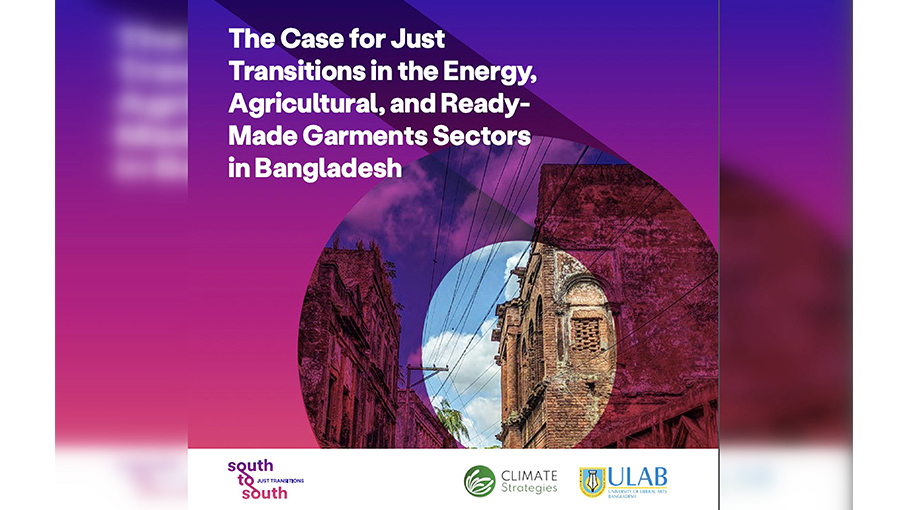‘Climate policies must integrate to build resilience to increasingly natural calamities’

Climate Strategies and the University of Liberal Arts Bangladesh (ULAB) in a research published on Monday concluded that Bangladesh's climate policies must integrate Just Transitions to build resilience to increasingly severe climate hazards, boost green employment and decrease inequality.
Bangladesh is one of the world's most climate-vulnerable countries and faces a future of rapidly accelerating climate disasters, says a press release issued on Tuesday.
The country's GDP is expected to decline by up to 9% due to severe flooding, tropical cyclones are costing the nation an annual economic loss of $1 billion, and water scarcity and rising sea levels may lead to 13.3 million internal migrants over the next 30 years.
Just Transitions offer a sustainable solution for Bangladesh, leveraging a low-carbon economy to uplift communities, create green jobs, and include marginalized voices in decision-making.
This approach can transform the ready-made garments sector, improve conditions, aid climate adaptation for farmers, and promote inclusive education.
The report provides recommendations to guide policymakers in achieving a smooth and equitable transition to a low-carbon economy, fostering growth while addressing climate change.
ShamsadMortuza, the project lead at ULAB, explained why a Just Transitions approach will be vital, stating: “The climate crisis has already arrived in Bangladesh: air pollution is a major health and financial problem, and the nation is facing a future of sea-level rise, increasingly powerful cyclones, floods, and more. Government ministries need to coordinate to enact a just transition to a low-carbon, climate-resilient society that leaves no one behind.”




